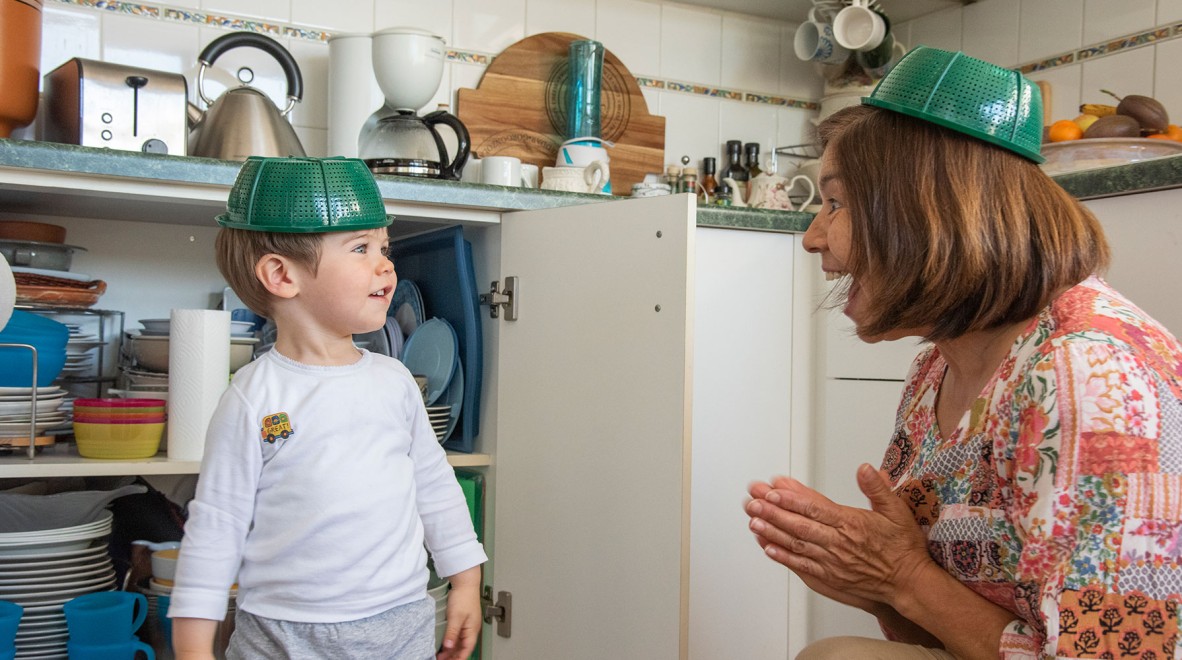
Listening games for little ones
30 October 2019 | State Library of Queensland
Before your child can learn to read and communicate, they need to understand what their important adults are saying to them. Listening and comprehending are among the most valuable skills your child needs to develop.
Listening games
Listening games can help your child refine these skills. Here’s a few time and toddler-tested games you can try at home:
Simon Says
This game helps your child learn names of body parts and describing words like fast and slow. It will also get them giggling and having lots of fun. Make sure you take turns being Simon. There are lots of ways you can adapt this fun game.
Treasure hunt
This game is great to help your child learn how to follow instructions. Pick out a few favourite toys and ask your child to close their eyes while you hide them. When they’re hidden from view, give your child clues on where they are. Once all the toys are found, switch turns.
You can play this same game during your everyday activities. Start with a one step instruction, then two steps, and then even longer instructions as they grow. For example, ask children to "get their hat and shoes" or "go to the bathroom and get your towel".

Listening and comprehending are among the most valuable skills your child needs to develop
Copy cat
Ask your child to copy a clapping sequence. Start with an easy one then make it more challenging. Take turns so your child can be both the follower and the leader.
Finish what I start
Ask your child to finish your sentences. This can work while you prepare a meal, sing some known nursery rhymes, or while sharing a familiar book. For example, “Today I’m chopping an _______ for lunch”, “Twinkle, Twinkle, little star ______________". Your child might enjoy swapping roles and ask you to finish their sentences!
Comments
Your email address will not be published.
We welcome relevant, respectful comments.